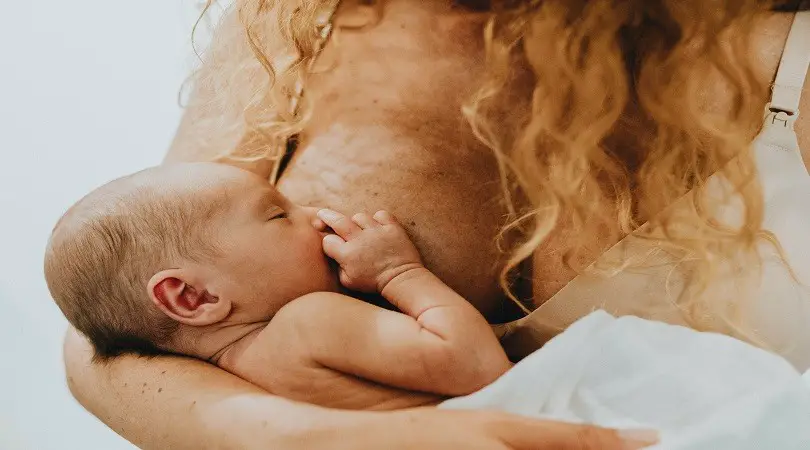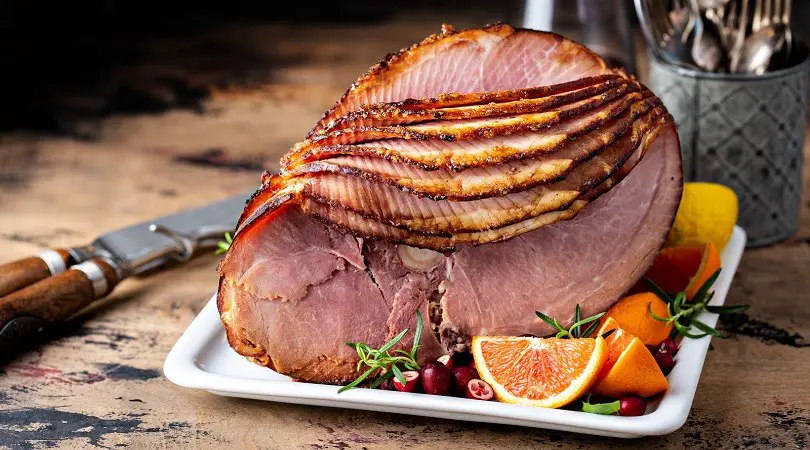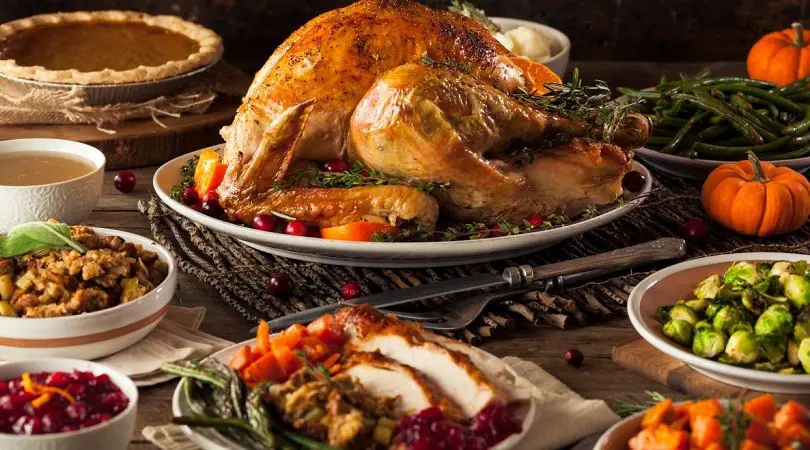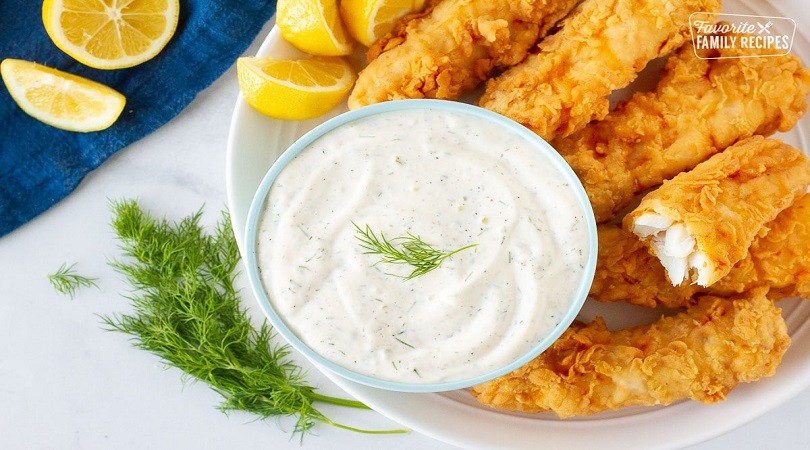Last Updated on December 2, 2022
When it comes to breastfeeding and hunger, new moms often have questions. Does breastfeeding make you hungry? The answer is yes!
Breastfeeding can boost your appetite, but there are also a few other reasons why you may be feeling constantly hungry when nursing. It’s important to understand the link between breastmilk production and hunger so that you can take steps to ensure both mother and baby get the nutrition they need. To put it simply, breastfeeding makes mothers hungrier because their bodies need extra calories in order to produce milk.
This is especially true during the first few weeks of nursing when milk production increases rapidly as your body adjusts from pregnancy levels of hormones back down again. In addition to needing more calories for milk production, your body releases certain hormones like prolactin which can also cause increased hunger levels during lactation.
Breastfeeding is one of the most important things a mother can do for her baby. It provides essential nutrients, antibodies, and other benefits that are vital to your baby’s development. However, many new mothers wonder if breastfeeding also makes them hungrier than usual.
The answer is yes – breastfeeding does make you hungrier! When you breastfeed, your body releases hormones that stimulate milk production and digestion in both you and your baby. This causes an increase in appetite as well as more frequent trips to the bathroom (which sometimes leads to hunger pangs).
Additionally, since producing milk requires extra calories from food sources such as carbohydrates and proteins, it will naturally make you feel hungrier throughout the day. The good news is that this increased hunger doesn’t necessarily mean unhealthy cravings or weight gain; rather it means eating more nutritious foods like fresh fruits and vegetables along with protein-rich snacks like nuts or seeds. Eating regular meals throughout the day (every three hours) should help keep hunger pangs at bay while still providing enough energy for both mommy and baby during feedings.
It’s also important to stay hydrated when breastfeeding – dehydration can cause extra fatigue which might lead to even more snacking on sugary foods later on in the day. Water or other hydrating beverages should be consumed regularly throughout feeding sessions so mommy has enough energy for herself too!

Credit: findyourmomtribe.com
How Do I Stop My Hunger While Breastfeeding?
If you are a breastfeeding mom, chances are that you’ve experienced hunger pangs more frequently than usual. Your body needs extra calories to make milk for your baby, so it’s important that you stay properly nourished while nursing. Here are some tips on how to stop your hunger while breastfeeding:
1. Eat frequent and small meals throughout the day – When it comes to eating while breastfeeding, frequency is key! Try not to let yourself get too hungry between meals or snacks as this can lead to overeating and feeling sluggish afterward. Eating smaller portions throughout the day will keep your energy levels up and help stave off those pesky cravings.
2. Make sure you’re getting enough protein – Protein is an essential nutrient for producing breast milk, so try making sure at least one meal per day includes a good source of lean protein such as fish, chicken, eggs or beans. Doing so will also help keep your appetite in check between meals since proteins tend to be more filling than carbohydrates or fats alone would be.
3 Reach for healthy snacks – Keeping nutritious snacks on hand like nuts and seeds, fresh fruit or vegetables with hummus can provide an energy boost when needed without having to resort to sugary treats which may only cause further cravings later on.
Alternatively, if time allows why not whip up something quick like oatmeal bars? This way you know exactly what ingredients have gone into them plus they taste great too!
Why Do I Get Hungry So Fast While Breastfeeding?
If you’re a nursing mother, it’s likely that you’ve experienced hunger pangs shortly after breastfeeding. Not only can this disrupt your daily routine and make meal planning difficult, but it also has the potential to impact your milk production. In this blog post, we’ll explore why you may be getting hungry so quickly while breastfeeding and what steps you can take to help manage these feelings of hunger.
One possible explanation for feeling hungrier than usual while breastfeeding is the hormones involved with lactation. Breastfeeding releases oxytocin in the body which causes contractions in the uterus as well as changes in blood flow to supply more nutrients and oxygen to both baby and mom. This increase in hormone activity can result in increased appetite levels as well as an increase in thirst due to dehydration from all of that extra energy expenditure!
Another reason why you may feel hungrier when nursing is because breastmilk is easily digested by babies so they don’t need much food at a time compared to formula-fed babies who tend to require larger portions more frequently throughout the day. As such, since breastfed infants are not eating very large amounts or very often, mothers will typically have less opportunity for nutrient replenishment between feedings which could lead them to feel ravenous soon after feeding their baby.
Why Do I Gain Weight While Breastfeeding?
Many new mothers find that they gain weight while breastfeeding their babies. This can be a source of frustration, especially when trying to lose the “baby weight”. But why do we gain weight while breastfeeding?
The main reason for this is that your body needs more calories and nutrients to produce breast milk than it does during pregnancy or other times in life. Breastfeeding requires extra energy from food, which means you need more calories than before you were pregnant. Your body also needs additional vitamins and minerals to make sure your baby is getting all the nutrition he or she needs from your breast milk.
In addition to needing more calories, some women may be eating larger portions due to feeling hungrier after giving birth and nursing their baby frequently throughout the day. More frequent nursing sessions can lead to increased hunger as well since our bodies are used to having regular meals on a daily basis prior to pregnancy and childbirth; with feeding sessions being added in between meals, it could lead us to feel like we need something else besides just water in order stay full longer until the next mealtime arrives!
It’s important for breastfeeding moms not only to eat enough but also to choose nutritious foods with plenty of protein, healthy fats, fruits/veggies/grains – all of these help provide energy for both mama & baby!
How Often Should I Eat When Breastfeeding?
If you’re a breastfeeding mother, it can be hard to know how often to eat. While some women say that they need more frequent meals and snacks than before pregnancy, others find that their appetite doesn’t change very much at all. Ultimately, every woman is different and should listen to her body when deciding how often she should eat while breastfeeding.
First of all, it’s important to get enough calories while breastfeeding. You will need about 500 extra calories per day compared with what you ate during pregnancy in order to support your increased energy needs for producing milk as well as other bodily functions. Eating too little or not eating enough nutritious foods can lead to exhaustion and difficulty making enough breast milk for your baby’s needs.
Ideally, you should aim for three main meals (breakfast, lunch and dinner) plus two healthy snacks each day—with one of those snacks being something like oatmeal or yogurt after nursing in the evening so that your body has fuel available throughout the night while you sleep. This way, your body can access the nutrients needed from food sources instead of breaking down muscle tissue which could lead to fatigue later on in the day or week if left unchecked over time!
It is also important not to skip any meals or go longer than four hours without eating something else; this could affect both your milk production and energy levels during nursing sessions which may result in less satisfaction for both mommy and baby alike!
I get hungry all the time when I breastfeed. Is this normal?
Does Breastfeeding Make You Gain Weight?
When it comes to determining whether or not breastfeeding makes you gain weight, the answer is complicated. Many women believe that breastfeeding will cause them to gain weight, but there is actually no clear consensus on this issue. Some studies have suggested that breastfeeding can lead to an increase in body fat, while others suggest that exclusive breastfeeding may even lead to a decrease in body fat.
The truth is that how much weight you gain (or lose) when you breastfeed depends largely on your individual circumstances and lifestyle habits. If you are eating a healthy diet and getting enough exercise while nursing, then it’s unlikely that your postpartum weight will be significantly different than what it was prior to pregnancy.
However, if you don’t follow a regular fitness routine and/or eat unhealthy foods during this time period, then yes — it is possible for some women to experience increased body fat due to their change in lifestyle habits following childbirth.
It should also be noted that any weight gained while nursing isn’t necessarily permanent; once weaning has been completed most of the extra pounds tend to disappear as well. In addition, there are many health benefits associated with breastfeeding which could potentially offset any potential changes in your waistline — such as improved immunity against certain illnesses and diseases for both mom and baby!
Conclusion
If you’re breastfeeding, chances are you might be feeling hungrier than usual. Breastfeeding is a demanding process that requires extra calories and nutrients to be able to produce milk for your baby. As such, it can make you feel especially hungry because of the additional energy required by your body.
Many people experience an increase in appetite while breastfeeding due to the added caloric needs, so don’t worry if this happens to you! Eating healthy snacks throughout the day can help keep hunger at bay and provide important vitamins and minerals needed for both mom’s and baby’s nutrition. Additionally, drinking plenty of water is essential as well since dehydration can also lead to feelings of hunger even when food isn’t lacking.
So if you’re feeling like snacking more often while nursing your little one – go ahead! Just remember not only what kind of food but how much as well so that both mama and baby stay nourished during this special time.









